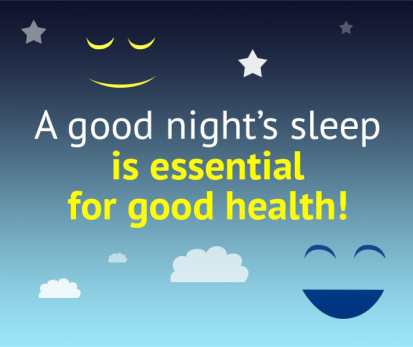Many of us lead incredibly busy lives and often this means cutting down on the amount of sleep we get.
However, getting enough sleep is just as important to wellbeing as eating a healthy diet and exercising. Here are 10 reasons why getting enough sleep is crucial.
Prevent Weight Gain
Too little sleep can significantly increase your chances of weight gain and studies have shown that those who get too little sleep tend to weigh more than those who get an adequate amount.
As such, getting enough sleep is critical if you’re trying to lose weight.
Eat Fewer Calories
Inadequate sleep interrupts the regular fluctuations of appetite hormones, which leads to sleep-deprived individuals consuming more calories.
Inadequate sleep causes higher levels of the hormone ghrelin, which stimulates appetite, and reduces the levels of leptin, which suppresses appetite.
Increase Athletic Performance
Various studies have shown that adequate sleep enhances athletic performance and in one study on a group of basketball players, more hours of sleep led to a significant improvement in speed, accuracy, reaction times, and emotional wellbeing.
Reduce the Risk of Heart Disease
It’s well-known that an increase in sleep reduces the risk of developing heart disease or having a stroke.
Multiple studies have shown that those who get less than 7-8 hours of sleep per night were at a much higher risk of developing chronic diseases.
Improve Concentration and Productivity
Various aspects of brain function rely on adequate sleep and cognition, concentration on Bendigo Cup betting, productivity, and performance may all be negatively affected by getting too little sleep or snoring. This snoring device can solve your problem.
In turn, studies have shown that getting enough sleep improves problem-solving skills and enhances memory.
Reduce the Risk of Type 2 Diabetes
Studies have repeatedly shown that those who sleep less than 6 hours per night were at a much higher risk of developing type 2 diabetes, as sleep restriction affects blood sugar and reduces insulin sensitivity.
Improve Mood
It’s estimated that 90% of people who suffer from depression also suffer from reduced sleep quality and inadequate amounts of sleep has even been linked to an increased risk of death by suicide.
People who suffer from insomnia and obstructive sleep apnoea also report much higher rates of depression.
Improve Immune Function
Even a slightly reduced amount of sleep has been shown to impair immune function. One study found that those who slept less than 7 hours per night were 3 times more likely to develop a cold owing to this reduction in immune function.
Reduce Inflammation
An inadequate amount of sleep has shown to activate negative markers of inflammation and cell damage in the body and is strongly linked to a long-term inflammation of the digestive tract leading to inflammatory bowel diseases.
Improve Social Interactions
Studies on those getting inadequate sleep found a reduced ability to recognise expressions of anger and happiness.
Not getting enough sleep is believed to negatively affect one’s ability to identify social cues and process emotional information.



